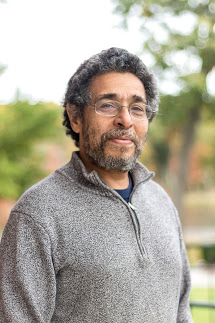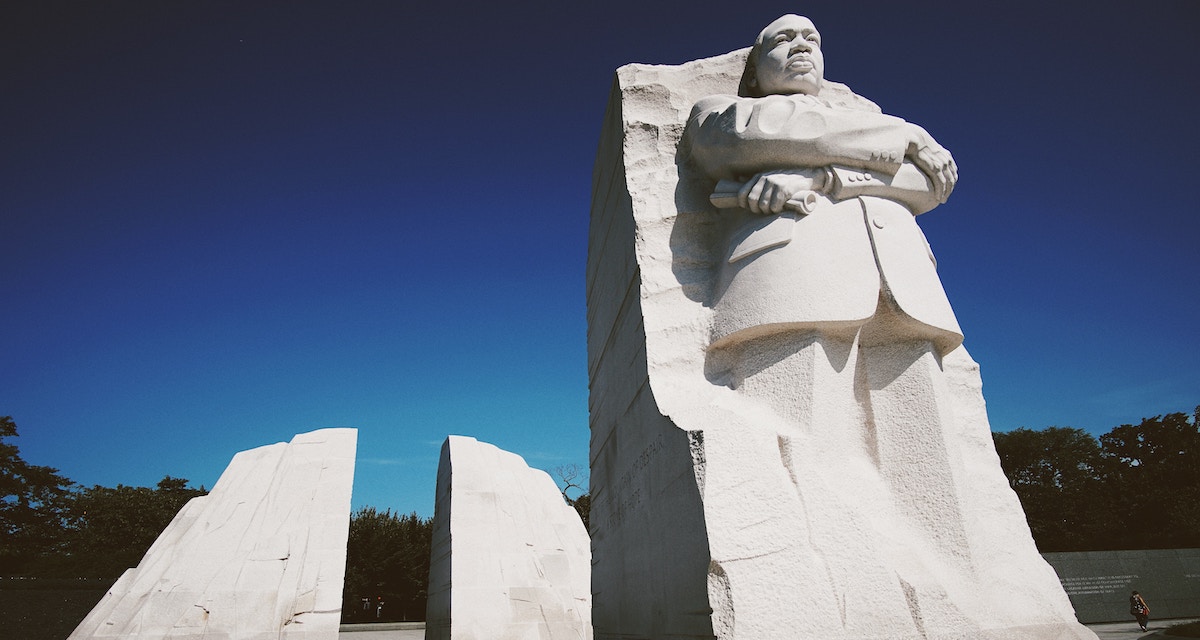How Does Race Affect Daily Life in America? An Interview with Bil Mooney-McCoy, Part II
In Part II of The Bell’s two-part interview with Director of Worship Bil Mooney-McCoy, we pick up the conversation (about where we are at with Dr. King’s dream) by hearing from Mooney-McCoy about what it’s like to be black in America in 2020.
The Bell: How does being a person of color affect your daily life?
 Mooney-McCoy: First is the sense of always being watched. When I wake up in the morning, I put on being black. I’m very much aware that I am black. If I get badly treated at a restaurant, it may be because the waitress was a jerk, but I always have to wonder.
Mooney-McCoy: First is the sense of always being watched. When I wake up in the morning, I put on being black. I’m very much aware that I am black. If I get badly treated at a restaurant, it may be because the waitress was a jerk, but I always have to wonder.
I teach private lessons in a church down the road from Gordon in Beverly. And every other Tuesday I unlock the door to the church to teach five to 10 students. Every single time I do that, I’m worried about getting stopped and questioned. It hasn’t happened and I pray it never does.
It can also create a lack of mentors. People tend to mentor those who remind them of themselves. Subconsciously, we tend to mentor people who look like us. It’s not as easy for a white person to see themselves as the younger version of a black person.
Furthermore, it can be difficult for white people who are mentors, therapists, doctors or teachers to be aware of the stresses that people of color are facing. They may not understand, for example, why after the 2016 election so many of us people of color were deeply distressed to the point of tears. White people do not have to understand what people of color go through and they do not have to understand our world. Whereas for me, I need to be able to be culturally competent in both worlds to succeed. That can be tiring.
Today, what are white people/people of privilege ignoring? What should activism or racial conciliation look like for them?
Mooney-McCoy: I think the key is cross-cultural relationships. This is more than “I have a black friend.”
I have some white friends and I can have these really difficult conversations and they won’t feel defensive. They’ll sit with me as a friend and ask to learn. I think that’s really key—to have a space where there’s nonjudgmental sharing of stories. I’ve been in other situations where I’ve shared my experiences of racism and I’ve had to spend my energy defending the fact that I felt that way. I don’t really feel like doing that. That’s tiring.
Pretty much every successful person of color from this country has had a white boss. I would encourage every white person to find an opportunity to work under a boss who’s not white.
Likewise, I would encourage white folks to live in a non-white community or go to a non–white church—to be in a place where you’re the one who is different. Where you’re having to learn a new code, new cultural values, a new way of being.
Here at Gordon, our academic requirements should include cross-cultural experiences. Every department should be looking at their curriculum and asking, “How does this skew this bias?” The reality is that within a generation, this country is going to be majority minority, which is obviously a contradiction in terms, but, white people will not have majority. Given that, whites need to have experiences relating to people who are not white or they are going to be at a disadvantage.
I love the term “affirmative action” because I believe it’s saying we need to take deliberate steps. That includes things like advertising available jobs with the Black Ministerial Alliance or The Daily Banner and going to places where minorities are. Connecting with Asian and Hispanic and Native American organizations, making them aware of positions.
Finally, it’s important for white people to really learn [our] stories—Sheila’s book is a good place to start. It’s hard to hear these stories, but stay with them. Stay in it just to bear witness. White people can’t fix what’s happening. When someone’s parent dies, you don’t fix that. There’s something to be said for listening and learning. And weeping with those who weep.
What would it look like if there was real equality in America and elsewhere?
Mooney-McCoy: Superficially, the kid going to school in Lawrence or Dorchester would have the same opportunities as the kid going to school in Wellesley or Wenham. It would mean that if I appear before a judge, I wouldn’t be worried that the way I look could impact the outcome. It would mean walking into any store and not having assumptions made about who I am.
Is there anything else you wanted to talk about before we sign off today?
Mooney-McCoy: One of the things that didn’t come up was the mandate for racial conciliation for us as Christians.
I think that Christianity is the only non-ethnically based religion or at least the first. I mean, until Christianity, every religion was based on where you came from. They worshiped Baal in Babylon. Egypt worshiped the pharaohs and sun God. The Greeks had their gods, and the Romans had theirs. Back then, your gods were based on your nation. That was true for Judaism. Christianity was radical. The [idea] that there is “neither Greek nor Jew.”
We, as Christians, need to be leading the way in terms of “one nation.” That’s what distinguished the message of Christ from anything else. We need to be committed to righting the wrongs and to putting all of us on equal footing. That’s really in the DNA of our Christology.
If you missed it, you can still go back and read Part I of The Bell’s interview with Bil Mooney-McCoy.
 The Bell
The Bell